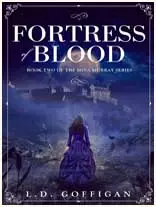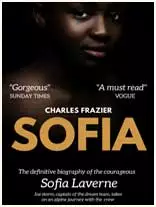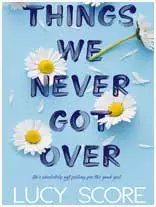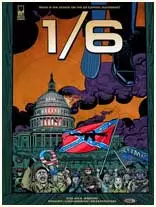How to Find an Editor for Your Book?

Writing a book is perhaps the most gigantic undertaking in a writer's life. But actually, that journey does not end with the last word-tapping: the next step is editing; the stage of the writing process distinguishes an acceptable book from a perfect one. Whether you have been published, or a first-time author, it is crucial that you discover the editor properly-aligned with your work so that you can have your voice refined to ensure good listening by readers.
In this guide, we're going to show you how to find an editor for your book, the various types of editing out there, and how hiring a professional book editor can take your writing to another level.
Why You Need a Book Editor
Editing includes more than simply grammar and punctuation corrections; a skilled editor will be able to offer you assistance with structure, flow, clarity, and overall readability. They'll assure that your book is devoid of internal inconsistencies and that the pacing of the narrative continually keeps the reader engaged. Fiction, nonfiction, or memoir: with an editor on the job, there is huge potential to improve your manuscript, making it easier to read and publish-ready.
The Varieties of Book Editing Services Available
Before searching for a book editor, it is first important to understand the types of book editing services that you can get. Depending on what is wrong in your manuscript, you can choose more than one kind of editing:
Developmental Editing
This is considered the first level of editing, where the whole manuscript is assessed. A developmental editor includes pacing, character development (in fiction), strength of argument (in nonfiction), and the organization of the work. They will be pointing out holes in the plot, weak areas, and where to improve, and often rewrite sections or suggest major changes.
Copyediting
Copyediting is pretty much along this line-refining text content about grammar, spelling, punctuation, sentence structure, and consistency in use. Copyeditors make sure it is crystal clear and smooth when reading the manuscript, while correcting errors in language and improving it.
Proofreading
Proofreading is the last part within the editing process. A proofreader will check and note any last-minute mistakes in spelling, punctuation, and formatting before the manuscript would be published. This would be the final sweep of checking that the whole book is free of errors.
Formatting and Layout
Though not impartially one kind of editing-as it may be construed as such, formatting and layout hold significance in preparing the manuscript for publication. The look of your book-print and digital terms-will be clean and consistent by your hired professional editor or through a separate formatter.
Steps to Find Someone to Edit Your Book
You now know the types of book editing services one might require, and it is now time to search for that special someone to help refine your manuscript. Follow these steps to make your search easier:
1. Identify Your Editing Needs
First, determine what type of editing your manuscript really requires. To do so: Does the manuscript need a complete overhaul (developmental editing), or is it just necessary to put the final polish at the end (proofreading)? Knowing what type of assistance you need will lead you to search for the best editor for you. If unsure, many editors offer samples of editing, which can help determine what level of editing your manuscript needs.
2. Search for Experienced Editors
Experience matters when you want to hire someone to edit your book. Hire a book editor who has been editing books in your category and who has worked in your genre. An editor for fiction will differ greatly from a memoir editor. You want someone who really knows the industry, what readers expect, and can make suggestions in light of current trends.
Consider these for possible venues to find qualified editors:
Freelance Websites: Gigs are great to find experienced editors on sites such as Upwork, Fiverr, and Reedsy. However, Reedsy is mostly focused on delivering high-quality editorial services, linking authors with substantiated professionals.
Doing More Research Editorial Associations: Many professional editors belong to organizations such as the Editorial Freelancers Association (EFA) or the Association of Authors' Representatives (AAR). These platforms offer searchable databases of editors by specialization.
Referrals: Ask from fellow authors, writers, or from people in your network if any have editor recommendations. Most word-of-mouth clients have found sources that know of a trusted and experienced professional.
3. Check Their Portfolio and Feedback
Once you find an editor you're interested in, look up their portfolio. An experienced editor will have a selection of edited works that include their testimonials or client reviews. This gives you an idea of how they might go about their editing process and whether they have worked on books like yours.
The following can be your cue:
Sample Works: Most editors would have a sample edit of your manuscript so that you would know how they'd approach your work.
Client Feedback: Recommendations and reviews from past clients help you understand the editor's work ethic, communication, and results.
4. Set the Budget
Book editing services widely range in costs depending on the specific type of editing, the editor's experience, and the length of the manuscript that you need. Generally, developmental editing is much more expensive than proofreading, as it requires quite extensive work. Book editing services per book range, on average, between $0.02-$0.10 per word.
5. Schedule a Consultation
When you narrow down your choices, schedule a consultation with your prospective editor. This is a time to discuss your project, ask questions, and see if the editor seems like a good fit for you. Within this discussion, you would typically cover expectations regarding the editing process, timing, and effects:
Questions to ask during your consultation:
How many books have you edited?
What’s your method of editing?
Do you specialize in the genre of my book?
Can you provide me with a sample of your work?
What’s your editing timeline?
What’s your payment structure?
Conclusion
Editing is an important step in the journey to publication: finding someone who will take on that task for your book. By following these steps, you’ll hire a book editor who can refine your manuscript to your heart’s content.
limited Time offer
- 00
- 00
- 2





